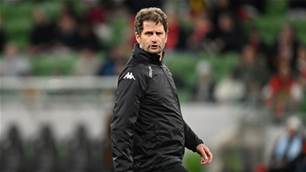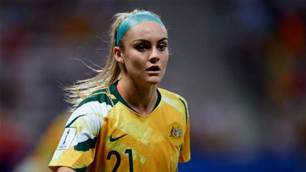There are professional footballers and then there are professional women’s footballers.
This same remuneration model could be adopted by other teams with comparatively successful teams, such as the USWNT.
Conversely, men’s teams such as Belgium or Brazil who are highly competitive in the world stage can generate vastly more income as opposed to their female counterparts and the investment into the national teams reflects this disparity.
The European heavyweights of Spain, England and France have disregarded this traditional model of investment.
Each of these nations have competitive male and female national teams but they have achieved this by investing in both sets of athletes treating all their footballers with the respect that they are owed as professionals.
Each nation has different, yet equally progressive investment models that allow them to pay competitive wages no matter the amount of money that is generated by each team individually.
Therefore, there is increasing numbers of talent being acquired by the leagues in these countries, investment begets investment.
Spain and England have been able to implement these investment models without the economic booster of a world cup that France enjoyed, but the current trends are working towards an equal playing field in terms of sponsorship and exposure by the media.
Breaking down sponsorship and exposure
The pursuit of funding is an ongoing and ever-present aspect of sports management.
Sponsorship has historically been difficult to secure for women’s sports with investment from female-orientated brands either choosing other marketing avenues or investing in male sport.
Examples include Gillette, Dove and L’Oréal who all invest heavily into men’s sport, almost to the detriment of women’s sport.
It is essential for the public to call out brands that invest extremely heavily in male sports without considering their female counterparts.
The simple 'money where the exposure is' argument doesn't cut it anymore, because there is increasing amounts of data that suggest that women footballers present better marketing potential due to their stronger stories.
Despite this, there is still a lack of investment, with brands choosing instead to invest in unknown male athletes rather than established female role models.
Brands that are unable to break into the male game, and use the history of underinvestment as an excuse to avoid sponsoring female athletes, clubs or sports.
It's deplorable and it doesn’t make good fiscal sense. Sam Grimley, Commercial director at ‘GumGum’, an online company that looks at sponsorship value says:
“You open up a whole new pyramid of brands. … I know what the entry level is for certain Premier League clubs, and it can be seven digits to even have a conversation. So that obviously rules out a lot of brands very, very quickly. If the women's team is asking for low six figures, it means you've got this much bigger audience of brands you can reach with the money and also you've got brands who may not want to target a certain demographic.”
Female athletes are considered inspirational, make excellent role models and are advocates of positive body image.
They present better “stories” from a marketing perspective and are perfect for entry-level brands to improve engagement.
How do we increase engagement with women’s sport?
That is what the true litmus test is for the value and support for female football.
Dear reader, the success of women’s football is dependent on you. It will never be taken seriously unless it is supported seriously.
This is aimed at those who seek to play the game professionally but do not possess a membership to a women's team. Think of it as an investment in your own future. How are you meant to be taken legitimately if you will not do the same for those who trailblaze ahead of you?
Those of you who play the game but do not watch the game. How are you meant to improve as footballers without watching the game played at the elite level? Parents who wish to provide every opportunity for their children but do not encourage them to see the role models that they require to help realise their potential.
Either on the television or in person.
Little girls need to see women playing football professionally if they are to imagine themselves playing football professionally. Little boys need to watch professional women’s footballers if they are to going to respect women’s professional footballers.
Club supporters. Those who live and breathe for their tribe, their club. Those who battle the wind and rain to add their voice in support of their team but refuse to do the same for those other athletes who wear the same colours but have a different gender. If you truly want to see success for your club then you need to wish for success for ALL your club. If we truly want women’s football to be professional, then it is up to us to support women’s football. All of us.
We cannot allow ourselves the luxury of thinking that we exist separate from this issue. We are the key to overcoming the barriers and all it takes is for us to engage with the sport that we love if we are to affect positive change.
That is how we turn women’s footballers, into footballers.
Related Articles

'Timing not right': Montemurro's verdict on Matildas vacancy

Matildas: 'Fourth at the Olympics is honestly the worst place you could come'
.jpg&h=172&w=306&c=1&s=1)












